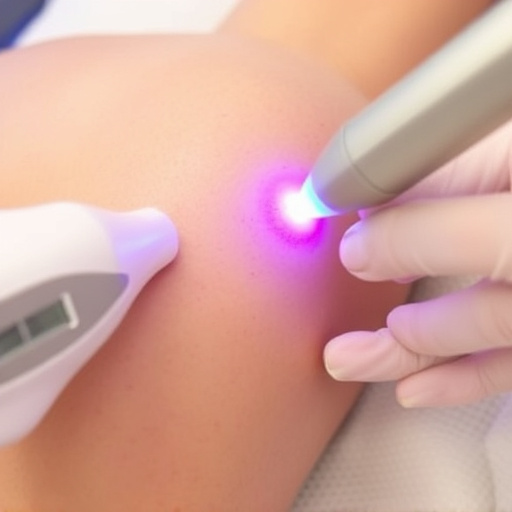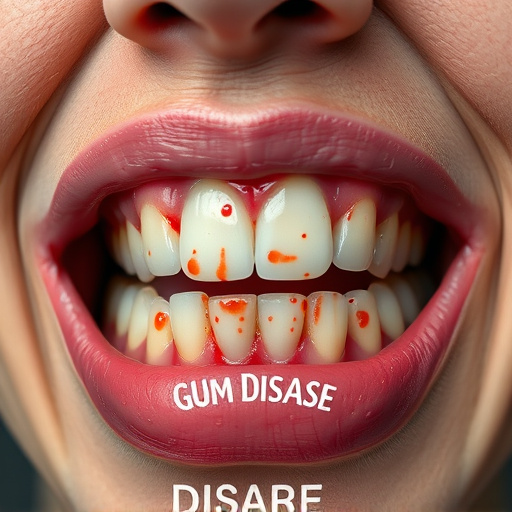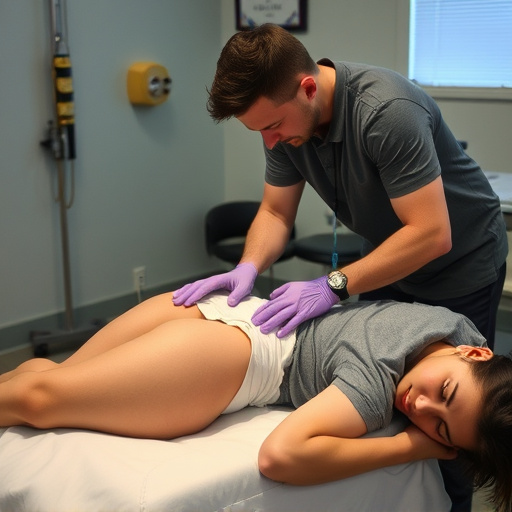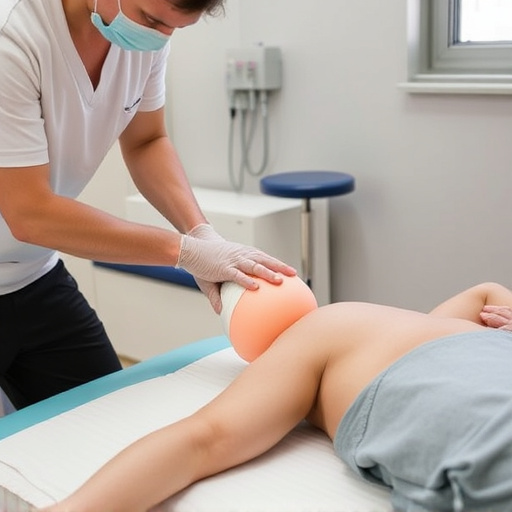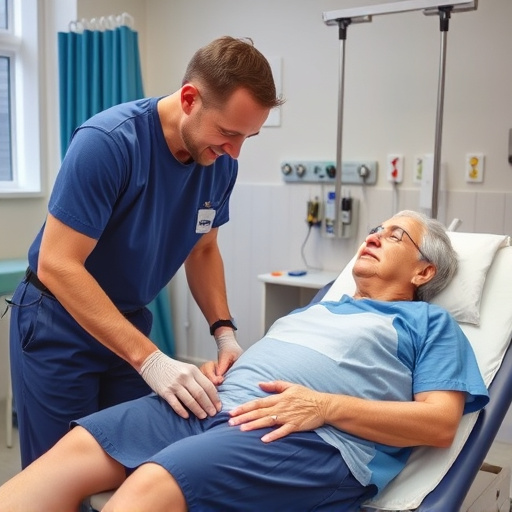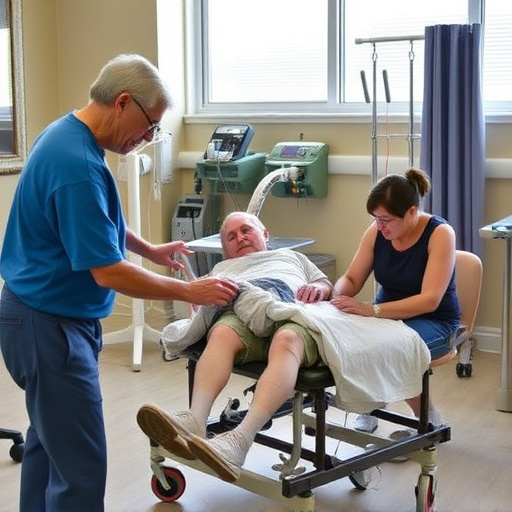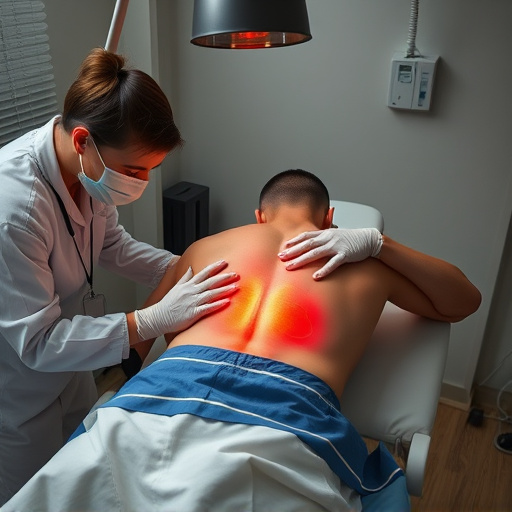Motor vehicle accidents lead to various injuries, including neck/back sprains, head traumas (concussions), and fractures. Effective motor vehicle accident care involves shockwave therapy, physical therapy, rehab services, pain management, rest, medication for healing, inflammation reduction, and specialized treatment for long-term recovery towards pre-accident functional levels. Timely intervention is crucial for managing these conditions.
In the aftermath of a motor vehicle accident, proper care for common injuries is paramount. From neck and back sprains and strains to head injuries like concussions, fractures, and broken bones, understanding these conditions and their treatment is crucial for anyone involved in such incidents. This guide delves into these prevalent injuries, offering insights into symptoms, diagnosis, and recovery pathways within the context of motor vehicle accident care.
Neck and Back Sprains and Strains
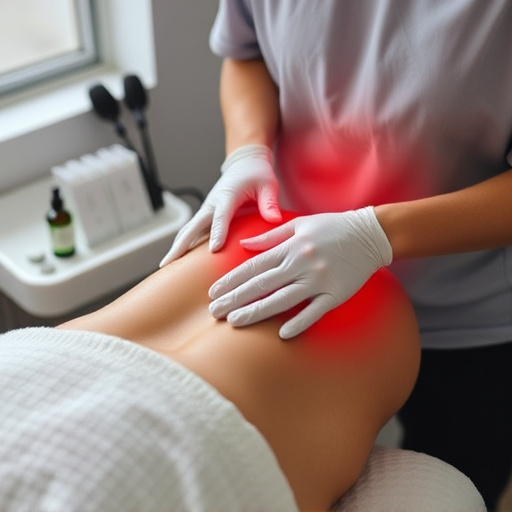
Neck and back sprains and strains are among the most common injuries treated in motor vehicle accident care. These types of injuries often occur due to the sudden, violent movement of the body during a collision, leading to twisting, bending, or tearing of muscles, tendons, and ligaments. In many cases, victims experience significant neck pain and back pain that can range from mild discomfort to severe disability.
Proper motor vehicle accident care for these injuries may include a combination of treatments such as shockwave therapy for persistent pain, physical therapy to restore mobility, and rehab services to help patients regain strength and functionality. Neck pain relief is often a primary goal, as it enables victims to resume their daily activities without discomfort. Effective management of sprains and strains not only facilitates healing but also prevents long-term complications that could affect one’s quality of life.
Head Injuries and Concussions

Head injuries and concussions are common and serious consequences of motor vehicle accidents. These injuries can range from mild to severe, with symptoms such as dizziness, headaches, nausea, and even loss of consciousness. In many cases, individuals might experience long-term effects, including cognitive impairments and chronic pain, emphasizing the need for prompt and specialized motor vehicle accident care.
Proper diagnosis and treatment are crucial in managing head injuries, particularly concussions. Wellness care professionals recommend a multi-faceted approach that includes rest, physical therapy, and in some cases, medication for neck pain relief or management of associated symptoms. The focus is on promoting healing, reducing inflammation, and implementing strategies for long-term recovery to ensure individuals can regain their pre-accident level of functioning.
Fractures and Broken Bones
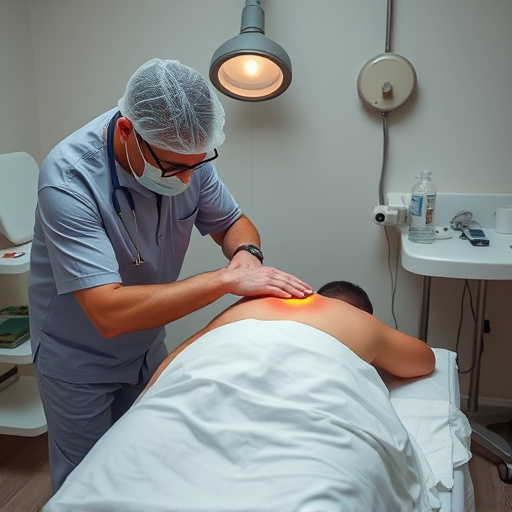
Motor vehicle accidents can result in a variety of injuries, one of the most common being fractures and broken bones. These injuries often occur due to the sudden impact and force experienced during a collision. The severity of these injuries can range from simple cracks to complex multiple fractures that require immediate medical attention. In cases of motor vehicle accident care, timely intervention is crucial for effective treatment and recovery.
Fractures and broken bones need prompt assessment and stabilization to prevent further damage. Medical professionals in motor vehicle accident care facilities employ various techniques such as imaging scans, splinting, and surgical interventions to set and heal these fractures properly. Therapeutic exercises and physical therapy play a significant role in the rehabilitation process, helping patients regain strength and mobility while also providing pinched nerve relief. Additionally, managing chronic pain associated with these injuries is an essential aspect of motor vehicle accident care, ensuring patients receive appropriate treatment for a smoother recovery journey.
Motor vehicle accidents can lead to a range of injuries, from sprains and strains to more serious fractures. Understanding common motor vehicle accident care treatments is crucial for victims seeking recovery and compensation. Whether it’s managing neck and back pain, addressing head injuries like concussions, or healing broken bones, proper medical attention is essential. This guide provides valuable insights into the critical first steps after a crash, empowering individuals to navigate the complexities of motor vehicle accident care effectively.




